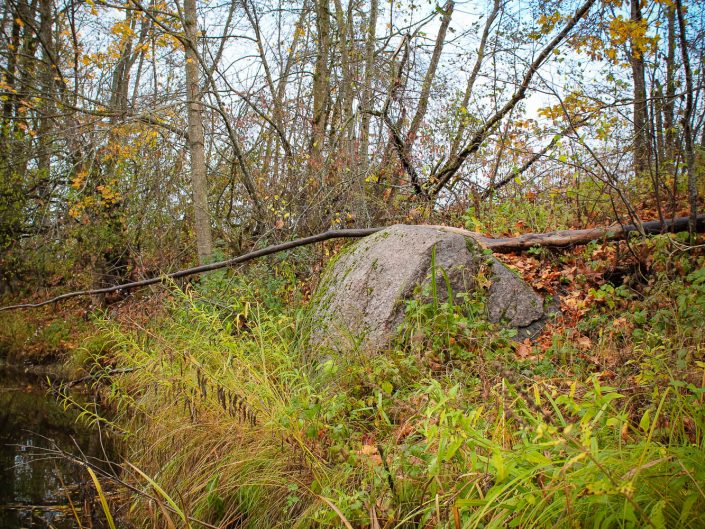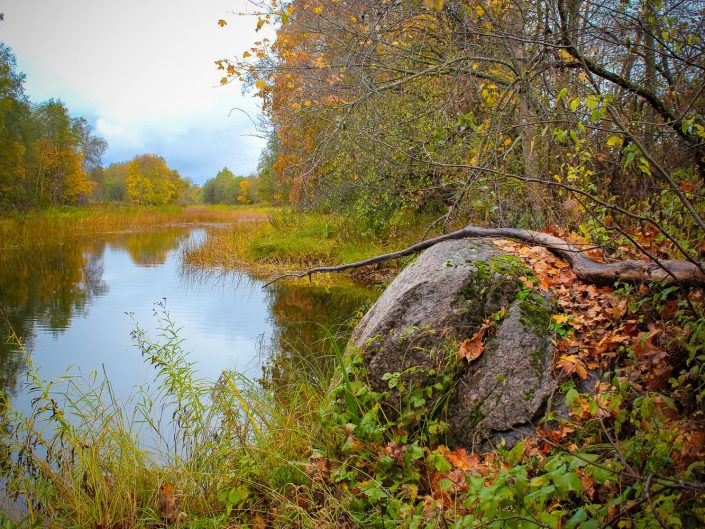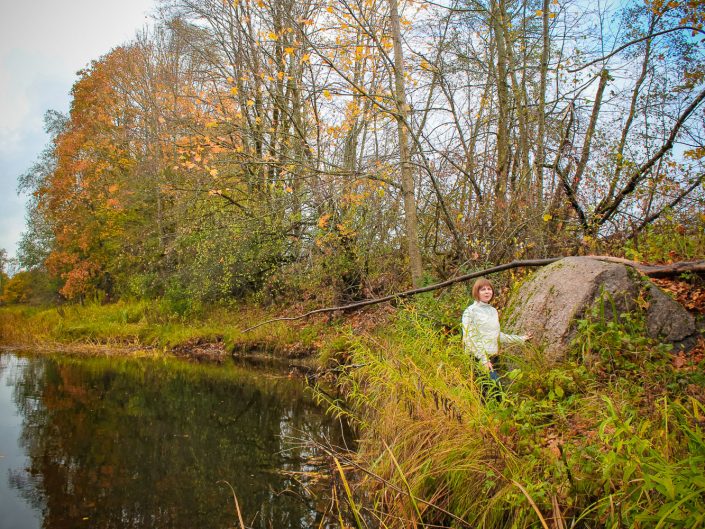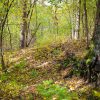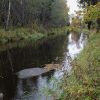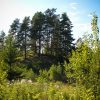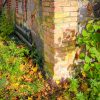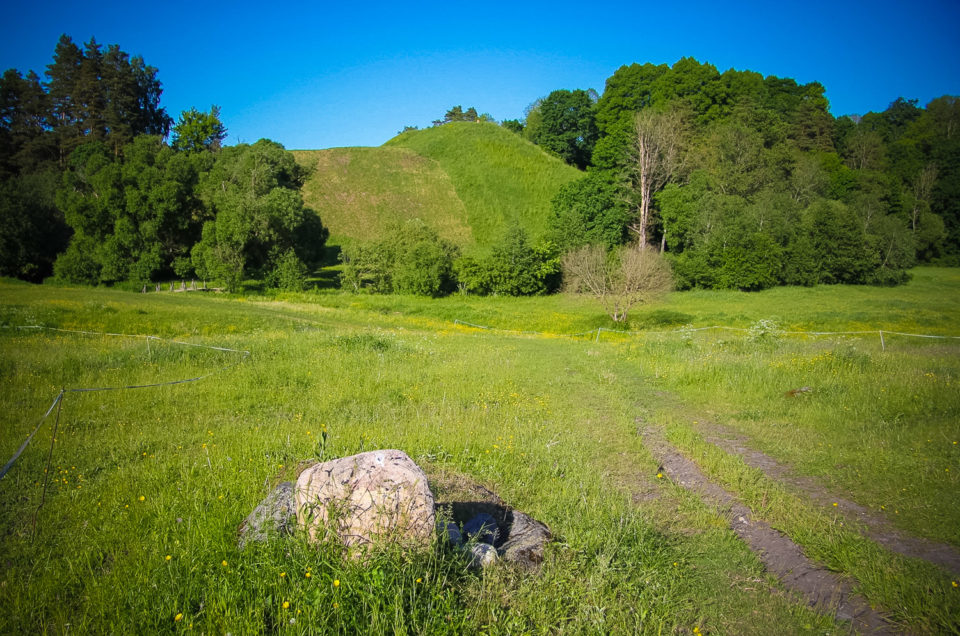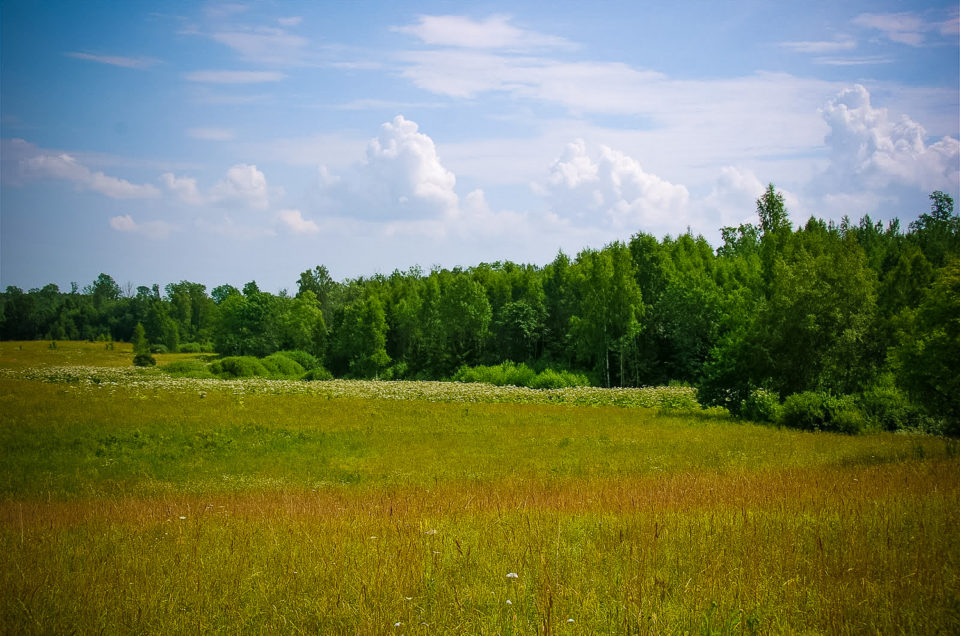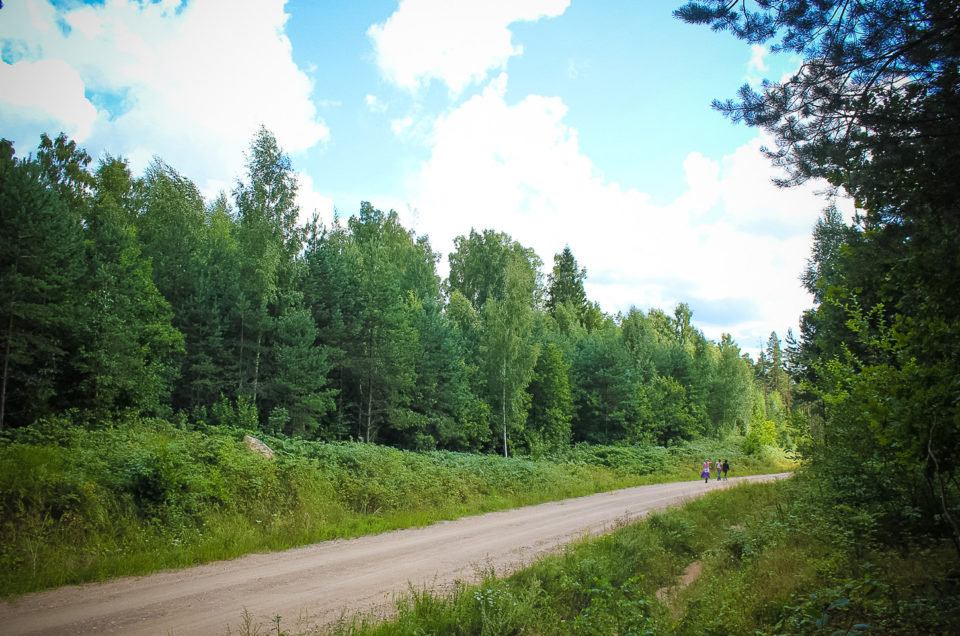Although the nearest home to the stone is “Plani”, it is called Jaunzemji Devil’s Nail in the reference documents, since it was related with the now gone “Jaunzemji” home in the legend. Dimensions of the stone: 3,7 x 2,0 x 2,3 m. Above ground – around 70%. Volume – around 8 m3. Rapakivi granite.
In the selected legends about the origin of Latvians there is also a legend telling the origin of the stone: “In Memele parish, next to the “Jaunzemji” home a small hillock is located. From one side it is enclosed by a forest, while the River Suseja flows slowly passing by the hillock on the other side. Earlier the place was a well-known site, where the songs never ceased. Songs were sung in the mornings and evenings. The maidens sang in the morning on their way to the field and in the evenings – on their way home. The maidens sang every evening: “Although I was tired, I sang on my way home.” But there was a man, who did not like the singing. It was the overseer of the manor. He had reported the people to the Devil. After that the overseer started threatening the people by telling the Devil shall take them to the hell would they not stop singing. Still this would not help. Then the Devil decided to punish the people by himself. Once, when the maidens had gathered for singing on the hill, Devil came roaring willing to catch them all and take them to the hell. The maidens nearly dropped dead out of fear. Suddenly a grey-haired old man had appeared. As it is said this was the God. As soon as the Devil had seen Him, it ran into the earth leaving nothing but smoke behind. Since he was in a rush, one of his nails had broken and later it turned into a stone. The stone looks very similar to a nail, and this is why it is called the Devil’s Nail also nowadays.”
According to Lilija Jakubenoka, a researcher of the local history, in the 50ties of the 20th century the stone was intended to be blown up, but the locals had managed to preserve the legendary stone and thus it was left untouched.
Contains information from the project:

Added by
www.latvijas-pilskalni.lv, www.senvietas.lv un hillforts.eu izveidotājs un uzturētājs.
